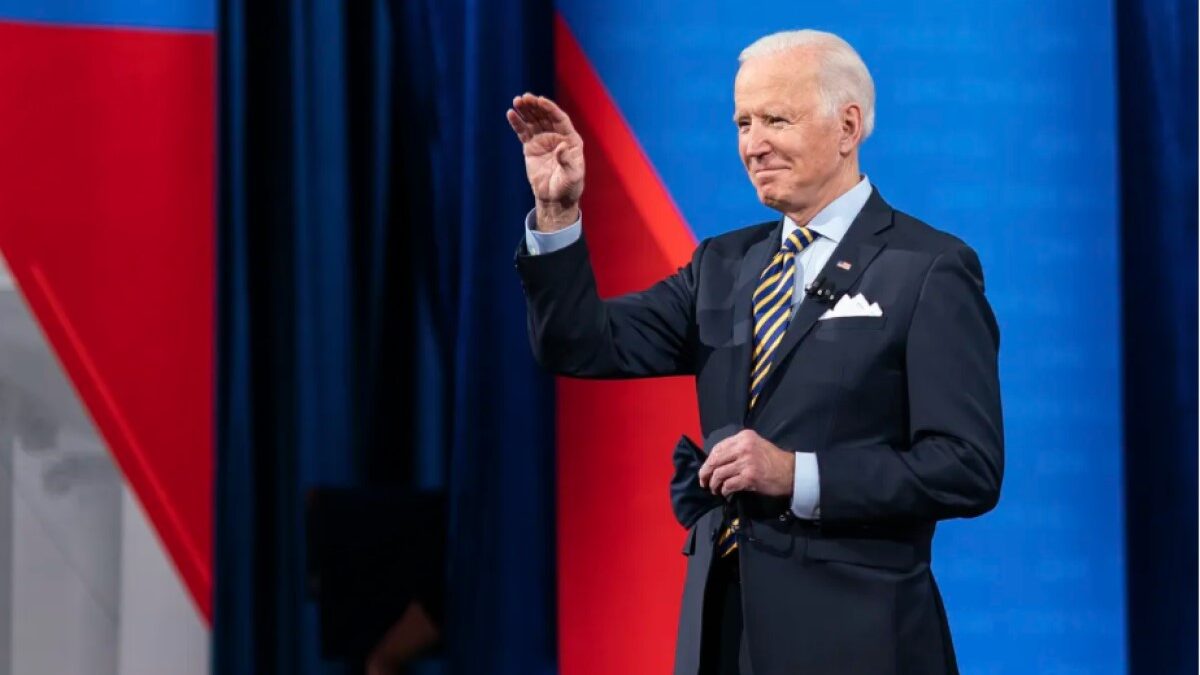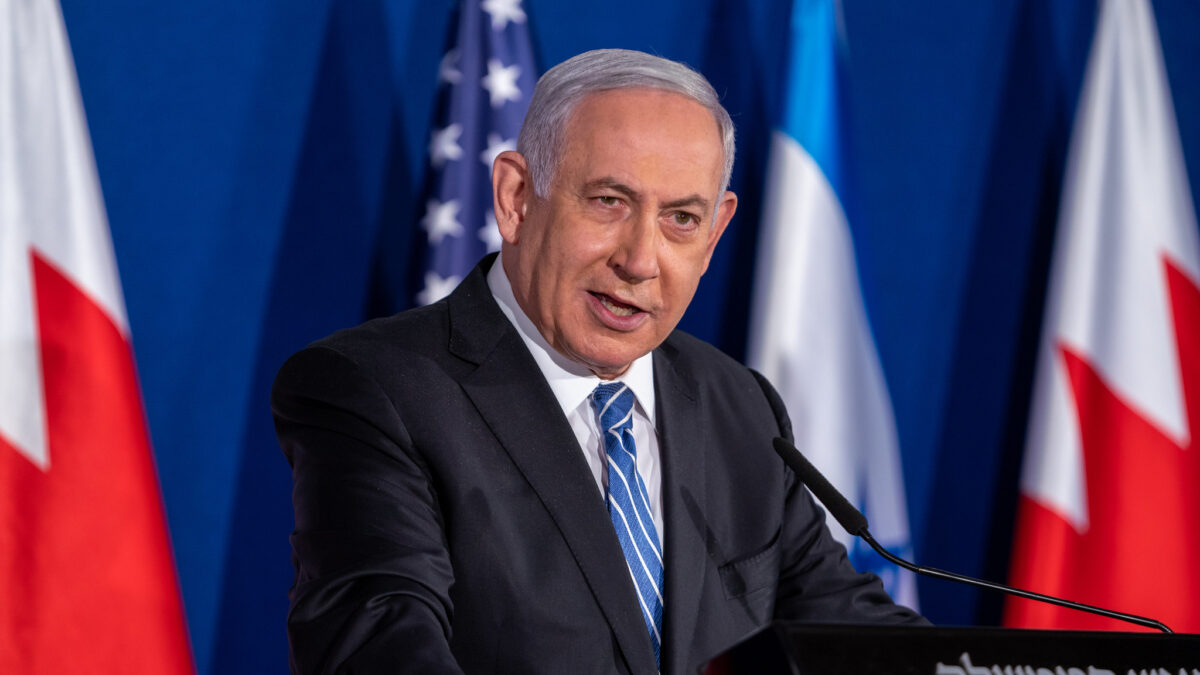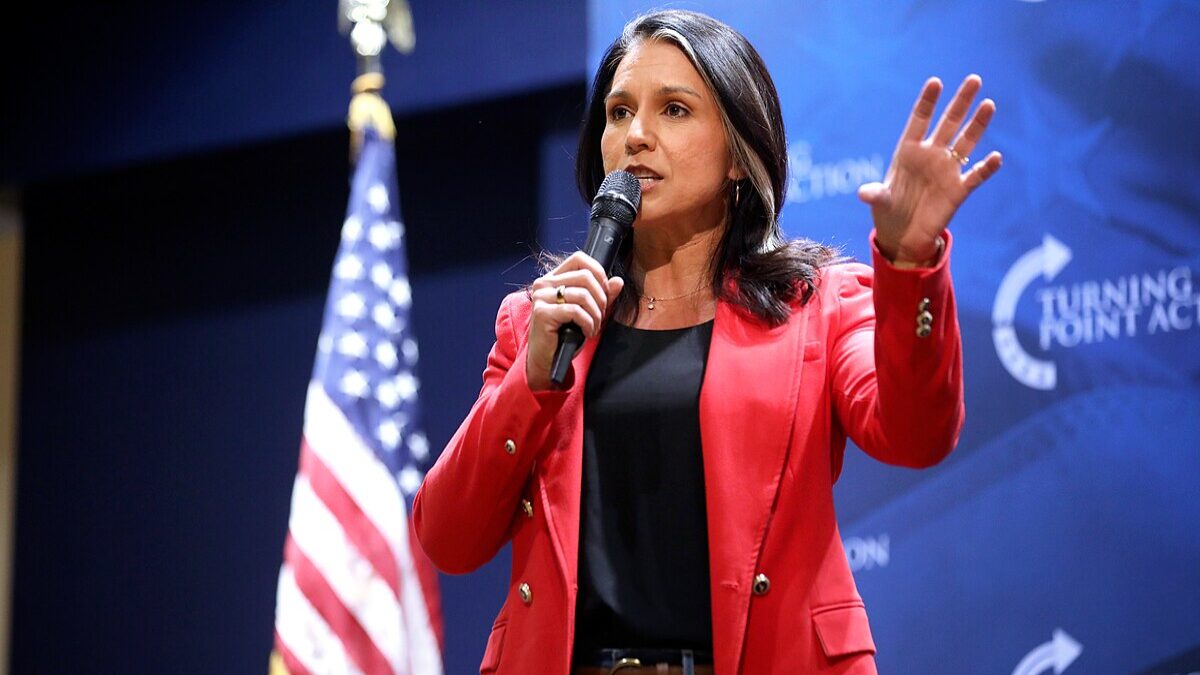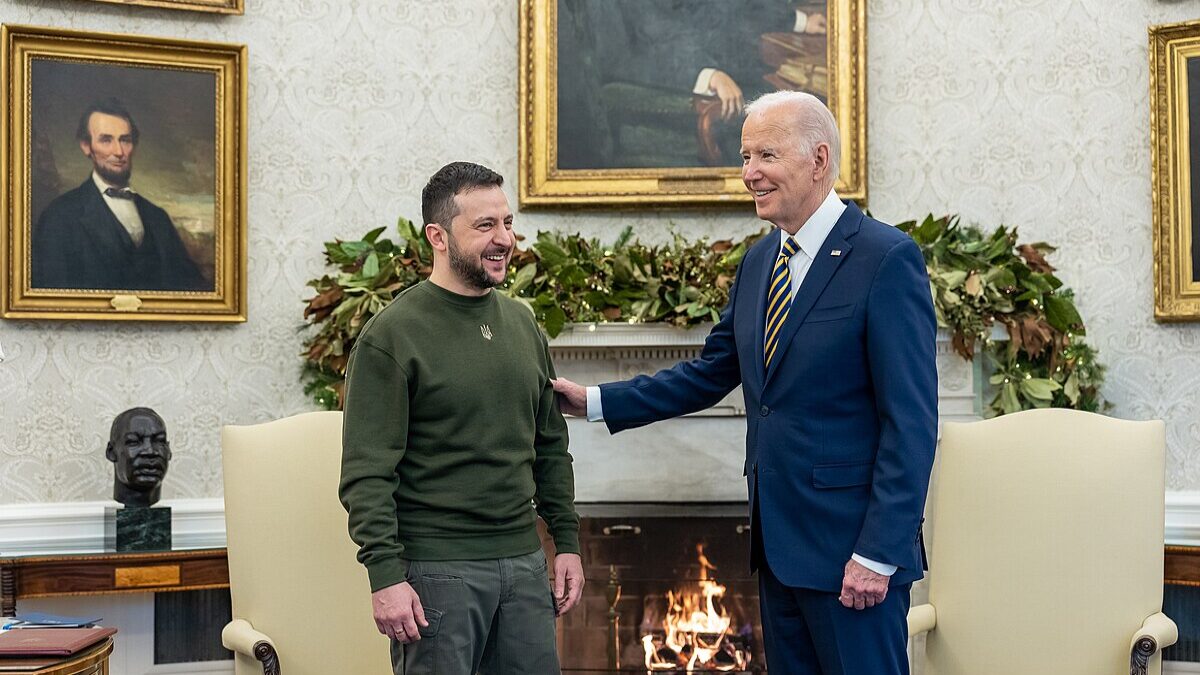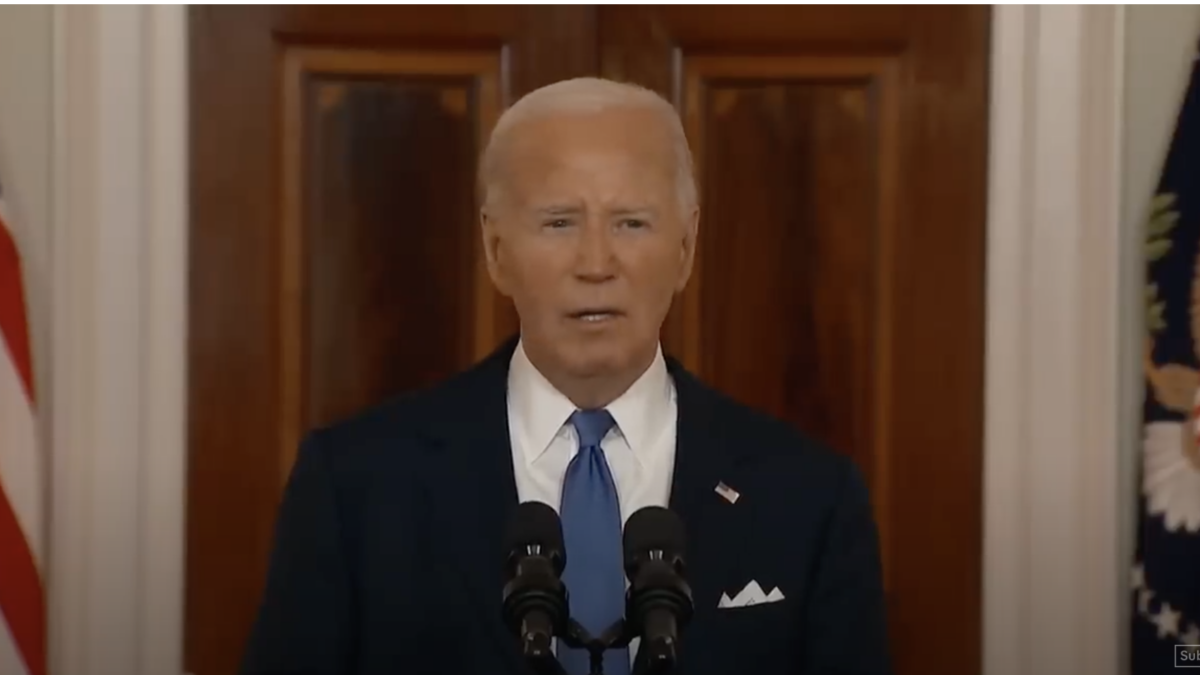American voters usually prioritize domestic issues over foreign policy during presidential elections. But several major blunders just in President Biden’s first year show the danger of not closely scrutinizing presidential candidates’ records on foreign policy.
During the 2020 election, foreign policy-related questions barely came up in any of the debates between President Donald Trump and Biden. The presidential debate commission in fact pulled foreign policy from their debate topics, perhaps to hide Biden’s weakness.
A YouGov survey in 2020 showed that 77 percent of Americans believed domestic issues were more important than foreign policy when choosing the next U.S. president. Additionally, people may have assumed foreign policy was Biden’s strong suit, since he was a U.S. senator for three decades and vice president under President Obama for eight.
Such an assumption couldn’t be further from the truth. Robert Gates, a defense secretary in the Obama administration, said Biden has “been wrong on nearly every major foreign policy and national security issue over the past four decades.”
Trump Was the Clear Foreign Policy Champ
In contrast, foreign policy was one of the bright spots in the Trump presidency. He orchestrated the historical Abraham Peace Accords among Israel, the United Arab Emirates, and Bahrain. His pivot to the Indo-Pacific was far more successful than President Obama’s pivot to Asia initiative.
Under Trump, the United States took a hard line on China, improved its relationship with India (the only Asian power that could check China), and expanded cooperation with allies by establishing the Quad, an unofficial alliance with Australia, India, and Japan. However, since most corporate media were anti-Trump, few wanted to give him any credit for his foreign policy accomplishments.
Instead, major media criticized Trump for being “soft” on Russia for his entire presidency. After Trump left the office, Fareed Zakaria of CNN finally admitted, “the Trump administration was pretty tough on the Russians. They armed Ukraine. They armed the Poles. They extended NATO operations and exercises in ways that even the Obama administration had not done.”
The combination of low public interest in foreign policy and a media that was willing to do everything to get Biden elected resulted in little scrutiny of Biden’s extensive foreign policy failures.
Joe Biden Botched Things From His First Day
During his campaign, Biden promised the American people that he would “go toe-to-toe” with Russia. But just within his first 48 hours in office, Biden delivered two gifts to Russia.
First, he rescinded the permit for the Keystone XL pipeline project, which would have created tens of thousands of jobs for American workers and delivered 830,000 barrels of oil daily from Canada. The cancellation of Keystone was the first of a series of the Biden administration’s “war on fossil fuel” policies that have strangled the U.S. energy industry and ended U.S. energy independence.
Biden’s energy polices not only hurt American workers and the American economy, but also had foreign policy repercussions. His policies caused gas price inflation, and provided Vladimir Putin the financial resources to cause nuisance worldwide, including invading Ukraine.
Biden’s second gift to Putin was to extend the New Strategic Arms Reduction Treaty, or New START, with Russia for another five years without fixing the treaty’s many flaws. For example, it doesn’t limit Russia’s capacity to pursue nuclear weapons outside the treaty. And China isn’t part of the agreement, even though China has been rapidly building its nuclear weapon capacity.
On Iran, rather than taking advantage of the leverage gifted by the Trump administration’s “maximum pressure” economic sanctions, Biden jumped right back to the disastrous 2015 nuclear deal. His appointment of Robert Malley as his special envoy to Iran — a man with a long history of sympathy to Iran’s authoritarian regime and overtly anti-Israeli sentiments — signals that appeasement is now U.S. foreign policy.
Groveling Before China and Russia
China is the most significant strategic rival of the United States, and the Biden administration’s China policies are full of contradictions. It extended some of the Trump administration’s policies, such as adding Chinese companies to an economic blacklist over alleged human rights violations and imposing a diplomatic boycott of the Beijing Winter Olympics. Yet Biden’s secretary of state refused to call China’s treatment of Uyghur Muslims a “genocide,” and the U.S. Department of Justice quietly shut down its China-focused anti-espionage investigation.
The first sign of how Biden’s domestic policy would affect his foreign policy occurred during a high-level Sino- U.S. meeting in Alaska in March 2021. Biden and his team have often publicly criticized the United States, and through an executive order, Biden promised to address systemic racism in the country. China’s diplomats employed that same rhetoric to dress down American diplomats and attack America’s moral leadership in Alaska. The U.S. diplomats couldn’t mount a strong rebuttal because Democrats believe it.
All these were early warning signs that Biden’s foreign policy would end up empowering America’s adversaries at our expense. Then came the Biden administration’s disastrous withdrawal from Afghanistan. It revealed how incompetent and unfocused the Biden administration is. After it, Biden’s approval rating dropped 8 percent.
Americans don’t like to see our military and government humiliated by a group of ragtag militants. We were distraught over the loss of 13 American soldiers during the withdrawal. America’s embarrassing retreat from Afghanistan emboldened adversaries from Moscow to Beijing to Tehran to achieve their aggressive geopolitical goals.
Now Comes Russia’s Invasion of Ukraine
Biden’s poor handling of Russia’s invasion of Ukraine is a perfect example of how one foreign policy failure led to another and Biden’s domestic agenda constrains his foreign policy. Biden waited until Russia attacked Ukraine to impose his first round of economic sanctions.
After Germany announced it will finally increase its defense budget, Biden followed by stepping up new rounds of severe sanctions. However, he initially exempted Russia’s energy sector from sanctions, hoping energy imports from Russia would help check U.S. gas inflation caused by Biden’s anti-energy policies. Putin uses every dollar we pay for his oil and gas to finance his war on Ukraine as energy prices continue to rise.
Only after huge domestic pressure did Biden announce he will finally ban Russian oil imports. This means even more pain for Americans, as it will likely hike gas prices even further, and gas prices affect the price of just about everything Americans buy.
Yet as recently as his State of the Union speech Biden has made it clear that he remains committed to his “green energy” agenda that means strangling U.S. energy, causing high prices for Americans. Rather than rescinding his ruinous energy policies, the Biden administration is actively courting other authoritarian regimes from Saudi Arabia to Venezuela, hoping to increase their oil imports.
One Horrific Failure After Another
Even more incredibly, while sanctioning Russia over its invasion of Ukraine, the Biden administration reportedly has relied on Russia to negotiate a nuclear deal with Iran, which would shower another murderous regime with billions of dollars with no guarantee of any change of behaviors. Mikhail Ulyanov, Russia’s chief negotiator, openly bragged that Iran has gotten more than it had expected.
The Biden administration has refused to share any details with the U.S. Congress and the American people. But we can be sure that any good deal for Iran’s mullahs will harm Americans’ safety, our national security, and peace in the Middle East.
Biden’s foreign policy blunders have weakened America’s international standing and sped up America’s decline. Biden’s flaws, especially his stubbornness and refusal to change course even when proven wrong, have become a significant obstacle to America’s prosperity and security.
As the saying goes, “Elections have consequences.” One of the biggest lessons learned from the Biden presidency is that foreign policy and domestic issues are often closely intertwined.
Biden’s presidency still has three long years to go and will encounter many more foreign policy challenges, including the biggest one: China’s likely invasion of Taiwan. If past history is an indicator of the future, thanks to too many Americans’ foolish votes for a known foreign policy bungler, China may end up replacing the United States as the dominant superpower in the new autocracy-friendly world order at the end of Biden’s first term.
